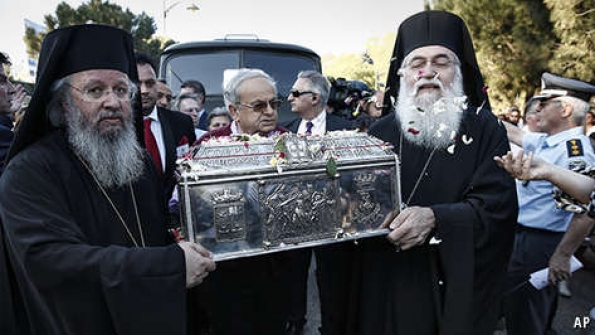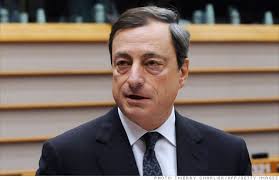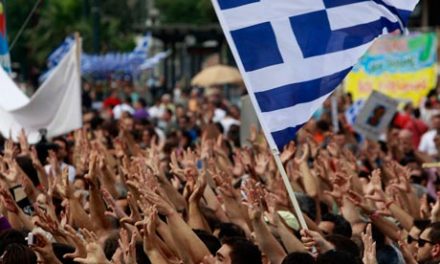Church and state in Greece
By The Economist
AS GREECE struggles to satisfy its international creditors, many Hellenes understandably feel that their country needs all the help, friendship and solidarity it can get. In that spirit, an important visitor who arrived in Athens last weekend drew an exuberant welcome from the nation’s authorities (political, military and ecclesiastical) as well as from thousands of ordinary folk. A silver casket containing the earthly remains of Saint Barbara, which has been kept in Venice for the last thousand years, was flown to Athens airport on Sunday afternoon, and escorted to a church in a grimy district of the city by a government minister, senior officers of the armed forces, a naval band and a bevy of bishops.
Even for a nation that is well used to public events that mix religious sentiment with patriotic pride, this was a spectacular show. The “loan” of Saint Barbara marks an unusually happy moment in relations between the Roman Catholic church and the Orthodox church of Greece, which has never quite forgiven the Christian West for the storming of Constantinople by Western soldiers in 1204. (Patriarch Bartholomew I, the senior prelate of the Orthodox world, enjoys cordial relations with his Catholic counterparts, but the Istanbul-based cleric often faces criticism in Greece for taking his dealings with Rome too far.) After a fortnight’s stay on Greek soil, the relics (a gift to Venice from a Byzantine emperor in 1003) will be escorted back to their Italian home on a Greek warship.
The welcome ceremony provided confirmation that Greece’s leftist government, whose leader Alexis Tsipras is a professed atheist, does not plan to proceed quickly with its declared aim of severing the country’s close ties between church and state. Admittedly, the government minister who received the relics was not a member of the Syriza party which dominates the ruling coalition; that honour fell to Terence Quick, a former TV journalist who sits in parliament for Independent Greeks, a small nationalist group that shares power with Syriza.
Indeed, not everybody in Syriza is happy about the fact that the state is lending its dignity to what is essentially an ecclesiastical event. Nikos Filis, a senior Syriza parliamentarian, has objected to plans to take the relics to a famous cancer hospital, where patients can venerate the saint if they wish. “It is a mistake to be sending a signal that something can replace medical science,” the politician said, after warning that the medieval practice of “trading in relics” seemed to be coming back. But this drew a strong retort from church spokesmen and other faith-minded Greeks; it was the politician who was “trading in relics” by using the saint’s arrival to score political points, they insisted.
Doubtless there are other members of the Syriza government who share Mr Filis’s reservations. But at a time when Greece is battling for its economic life, it would be a risky tactic for Mr Tsipras to pick a fight with the nation’s spiritual mentors, whether on earth or in heaven.



















